- Share via
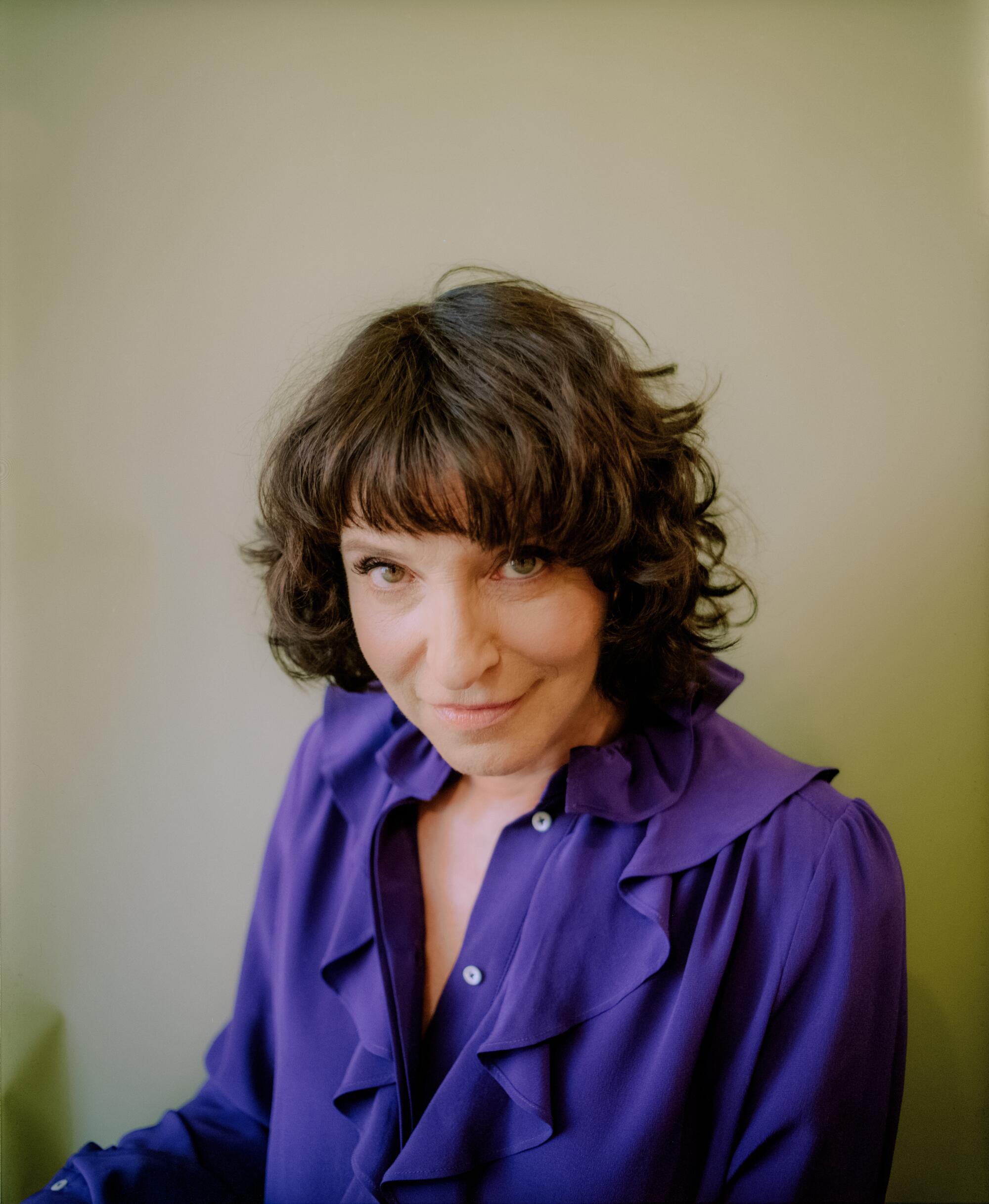
When award-winning filmmaker Susanne Bier was offered the job of directing Showtime’s limited series “The First Lady,” an epic telling of the momentous White House tenures of Eleanor Roosevelt (Gillian Anderson), Betty Ford (Michelle Pfeiffer) and Michelle Obama (Viola Davis), the challenge was apparent, but so was the pride in being asked.
“As a Danish person, to be able to touch the crown jewels of American history, it was like, ‘Whoa, this is a real honor,’” Bier recalled recently as she nursed an Earl Grey tea on the patio of the Four Seasons Hotel Los Angeles at Beverly Hills. “I have to treat this with respect, but also with a certain amount of liberty. And it was the right time to tell a strong female story.”
It wasn’t lost on Bier that a female producer (“First Lady” showrunner Cathy Schulman) asking a female director to bring to life three of history’s most consequential women was a once-in-a-lifetime opportunity for women as subjects and creators. The reality, however, is that Bier is as accomplished as anybody behind the camera, having traveled the world to make over a dozen films, winning an Oscar (for 2011’s “In a Better World”) and an Emmy (for the series “The Night Manager”), and whose last project was the hit HBO thriller “The Undoing.”
Not just anyone could corral a 10-episode saga with three interlocking narratives spanning 110 years and hundreds of parts, and suggest its sweep and its intimacy. “It takes someone with a substantial amount of experience to pull it off,” says Bier, who may have come from the arthouse world but is conscientious about audience interest. “If I’m not going to sleep for a year and a half and work all the time, I want people to watch it!”
That operating principle spurred her first big decision as director: spearheading a rethinking of the scripts, which when she first saw one, included all the intercutting between the three timelines. Bier wanted to shape the episodes herself, and only after making sure each of the women’s arcs were fully fleshed out and understood on their own. The fact that Pfeiffer’s, Davis’ and Anderson’s shooting schedules were staggered helped when it came to rewriting.
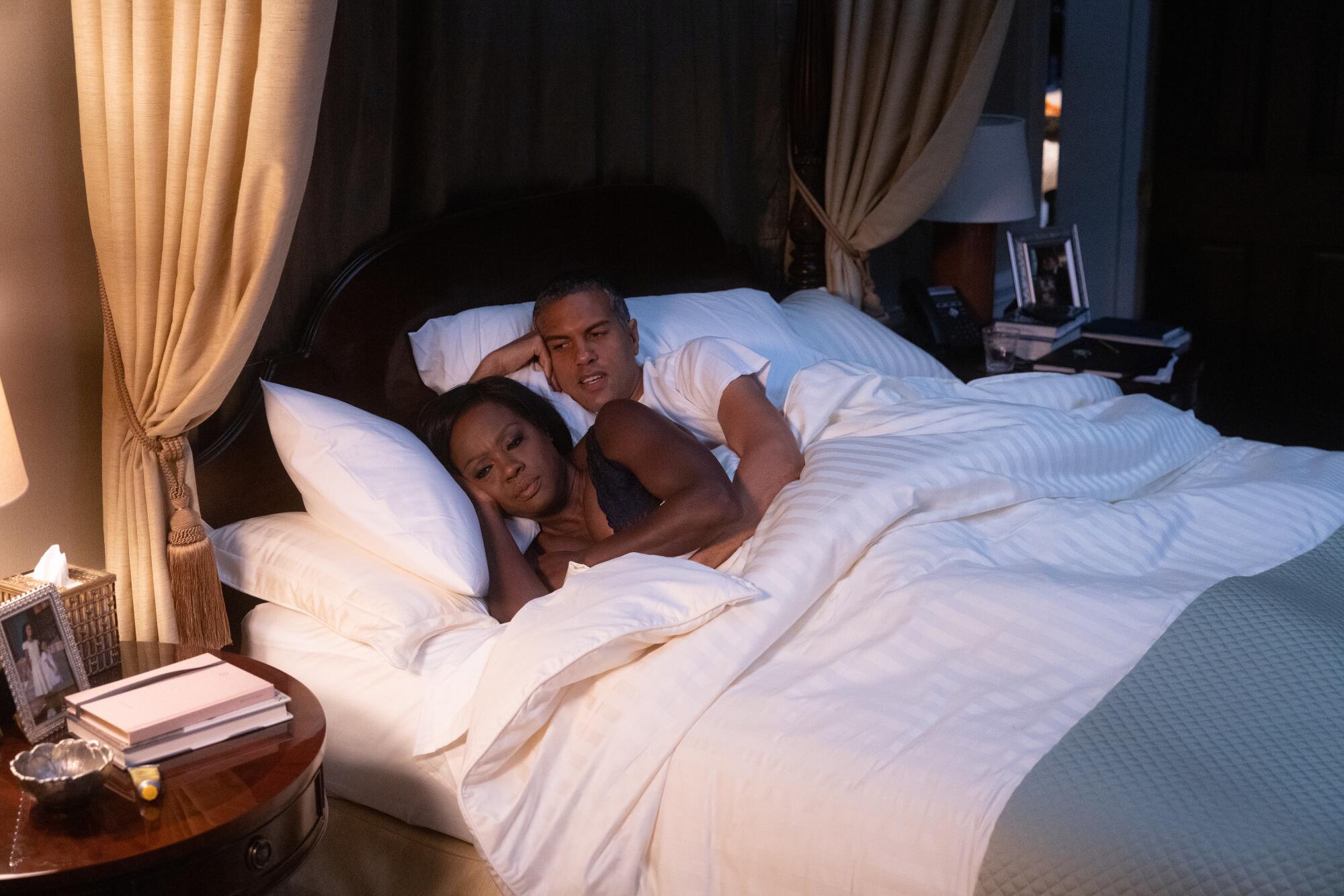
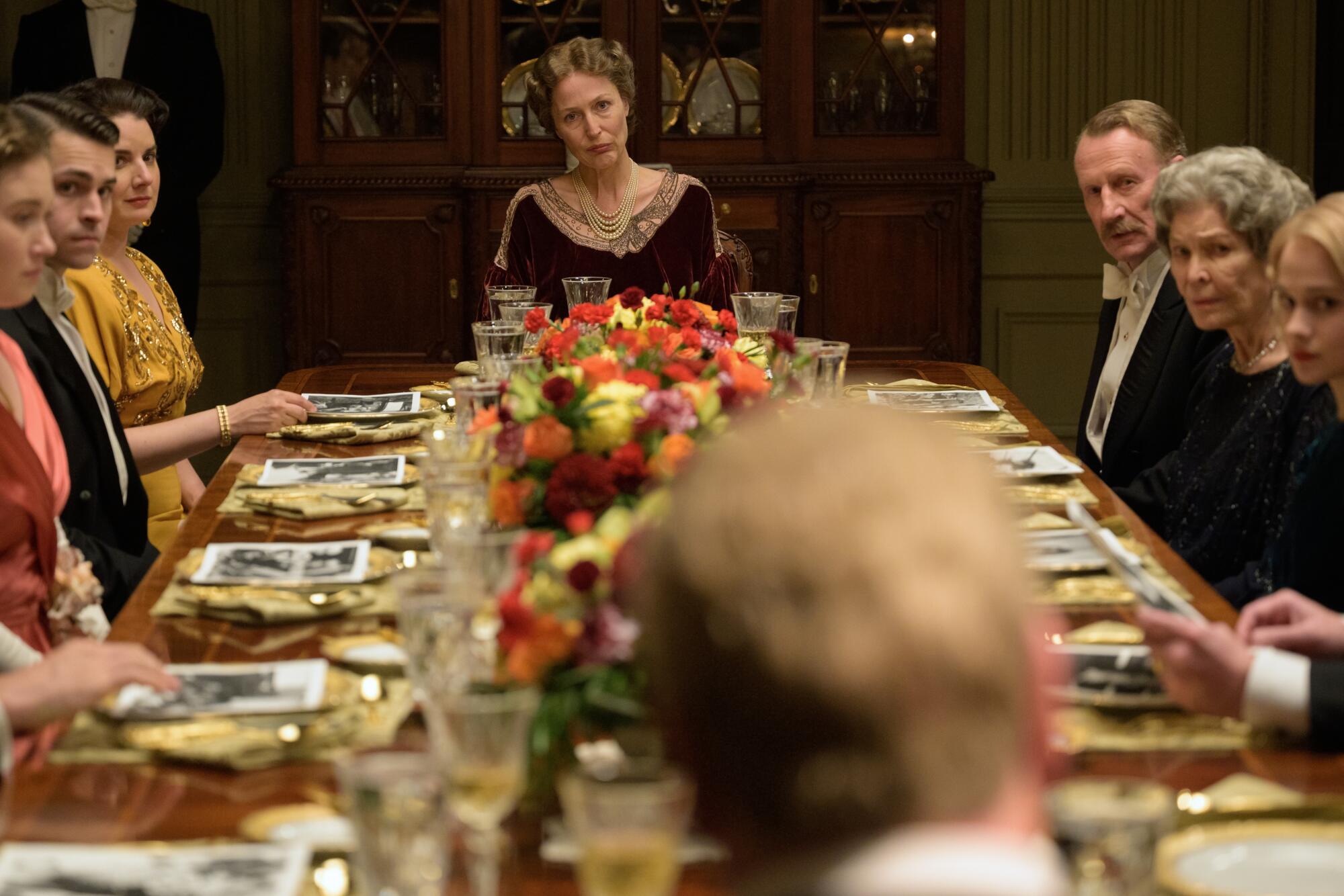
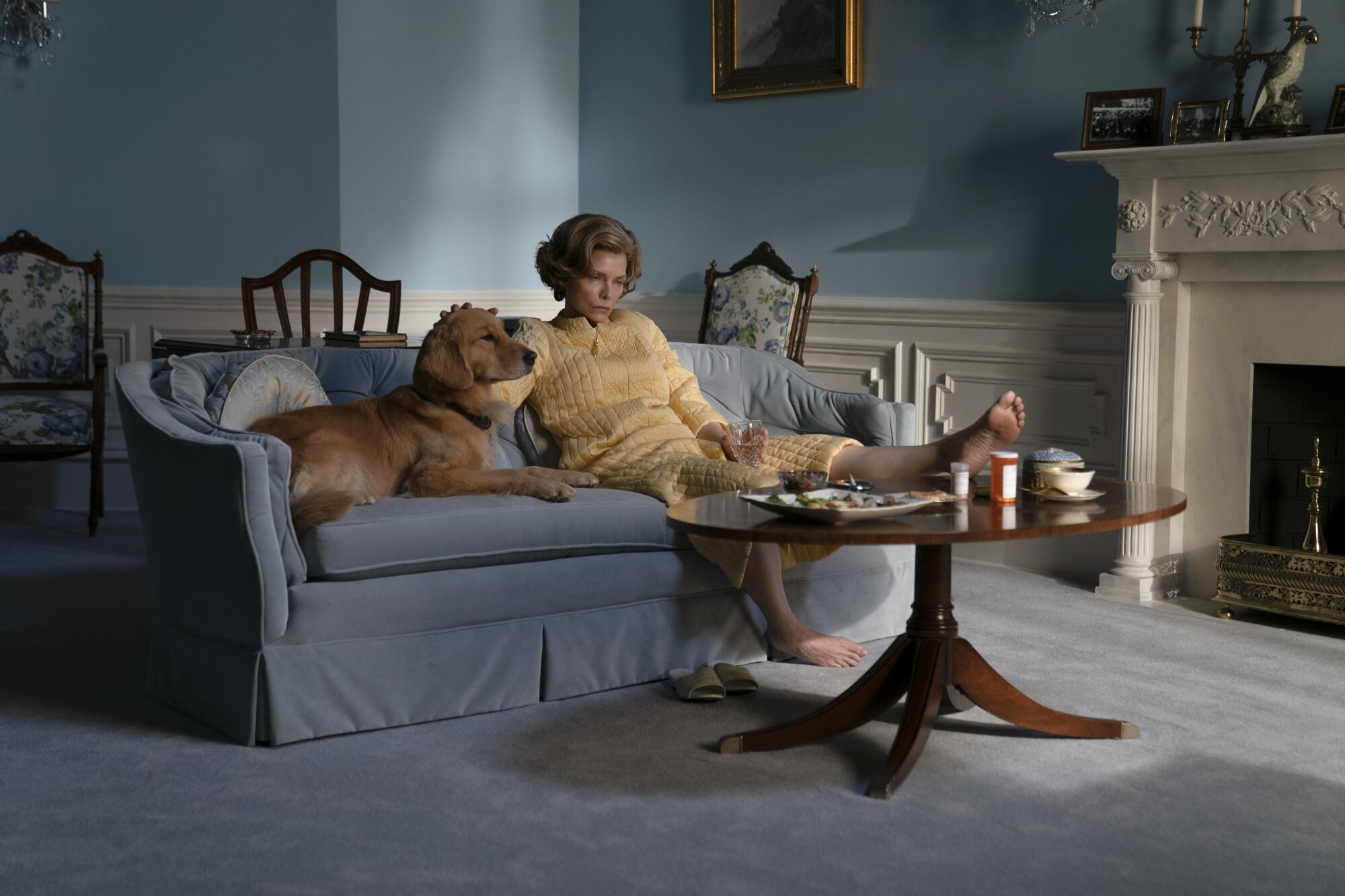
“While we were shooting Betty Ford, [the writers] reworked the Michelle Obama scripts, and while we were filming Michelle Obama, they reworked the Eleanor scripts,” says Bier. “By the end, I had three 3 1/2-hour feature films, essentially, on each character. And then I took that material and, with six editors, blended the stories.”
Bier describes the intensity of focusing on each figure at a time, and her portrayer, as a gathering emotional force. “I fell in love with Betty Ford’s story, her being so candid, this elegant, vivacious woman going public about breast cancer, about substance abuse, and I fell in love with Michelle’s performance,” says Bier. “And then we got to Michelle Obama, and I didn’t know how I was going to fall in love again. But then Viola came in and you look into those eyes, there’s so much depth, so many secrets, and the same thing happened. Then we were done, and Gillian came in, this hugely intelligent actress, and did that whole, weird thing of being incredibly fragile, deeply insecure, and at the same time relentless and harsh.” Bier pauses, as if lost in the memory of the shoot. “And I just fell in love!”
If Roosevelt’s private life was the trickiest for Bier to handle — “her sexuality was complex, so you don’t want to be exploitive” — Obama’s was the most daunting, because, she says, “we all think we know Michelle Obama.” And yet the series’ focus on finding what’s real beneath what flashbulbs and media coverage captured, always showed the way for Bier and her cast. “We want to see them vulnerable, their fragility as well as their strength,” she says. “Where they weren’t just glorified hostesses.”
Though this was Bier’s first historical project, she wanted to avoid the trap of emphasizing authenticity over talking to a contemporary audience. Bier wanted both. “With Eleanor, being betrayed by your husband is going to be relevant in any time,” she says. “That’s immediate engagement. But today, you can get divorced. She couldn’t get divorced. That’s where the period adds reflection.”
Researching and making “The First Lady,” Bier has come to see this domestically titled, routinely underestimated role in U.S. political life as a “secret weapon.” “It’s not a political position, but she is incredibly impactful and powerful,” says Bier. “Franklin Roosevelt recognized what a strength it was to have Eleanor there, that America got two presidents. And likewise with Barack Obama. Michelle changed our perception of how we involve young people. And Betty Ford, she might have had the most influence. She saved lives on a scale we don’t really know. Once they realize their potential influence, they change the world.”
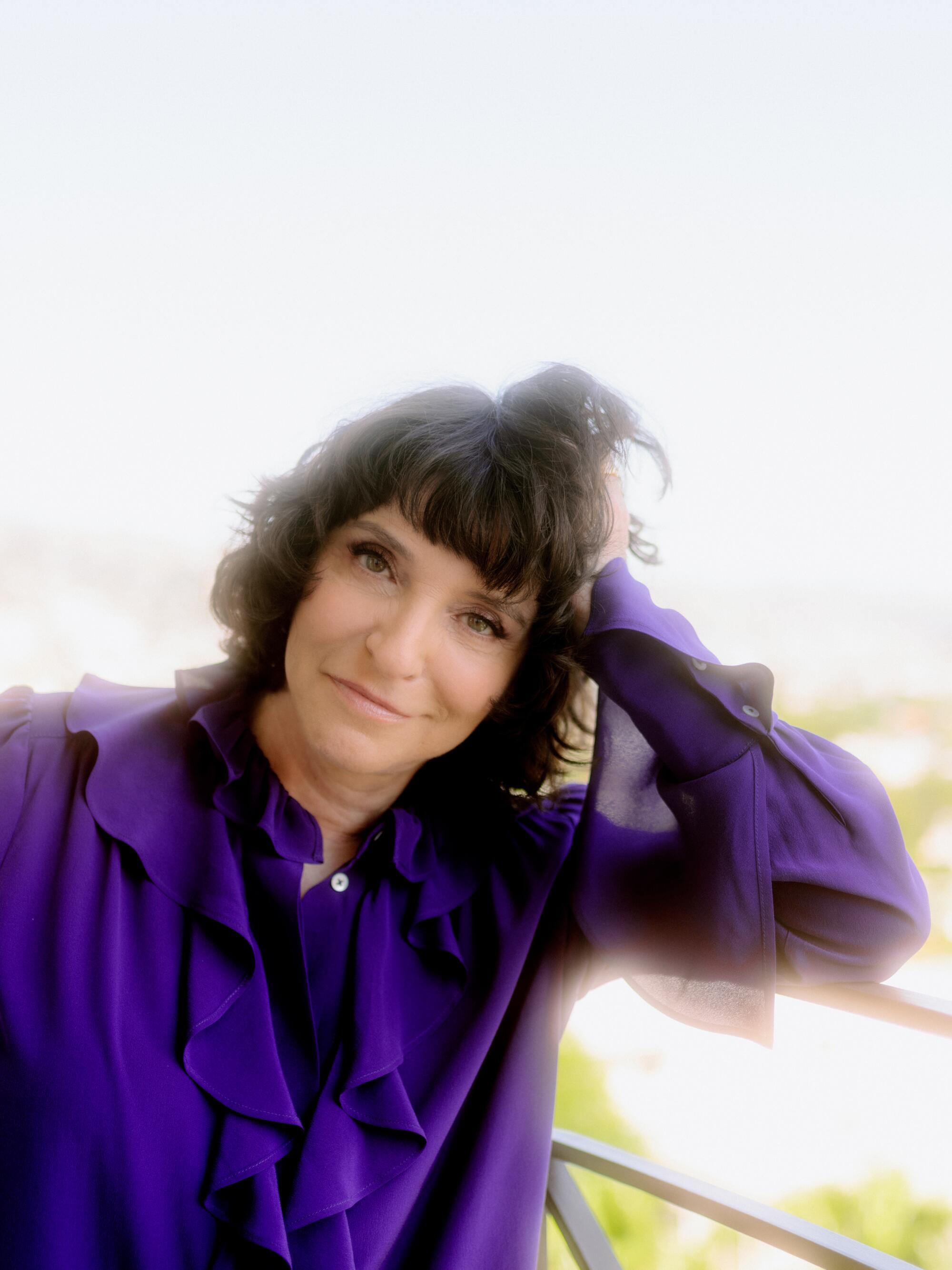
More to Read
From the Oscars to the Emmys.
Get the Envelope newsletter for exclusive awards season coverage, behind-the-scenes stories from the Envelope podcast and columnist Glenn Whipp’s must-read analysis.
You may occasionally receive promotional content from the Los Angeles Times.







